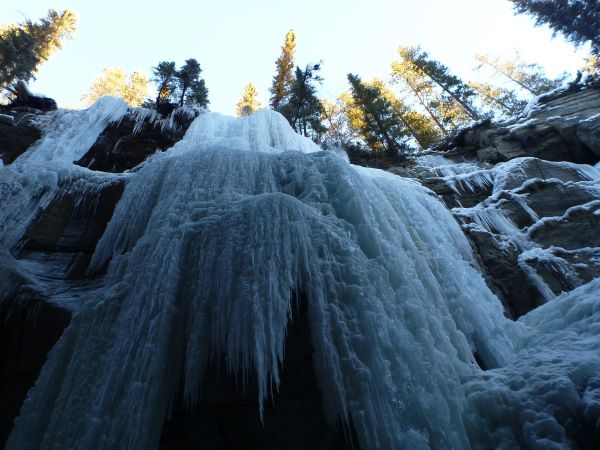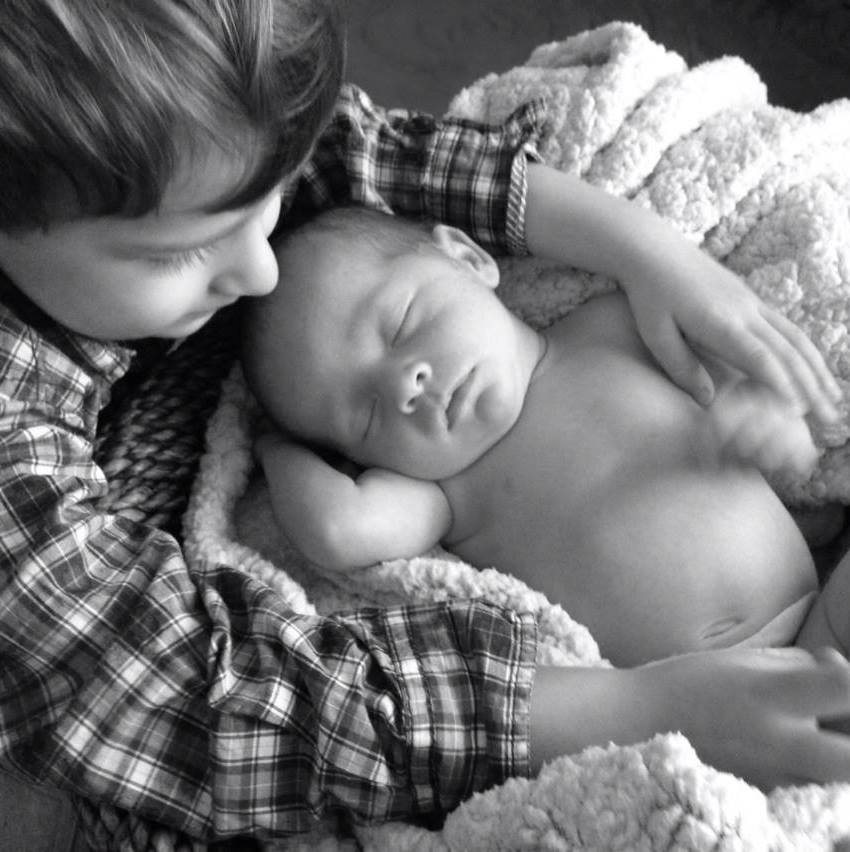Weep with Me

an uprooted tree
About a month ago at our rental home, I stood at the sliding glass door with my heartbroken boys watching our beloved magnolia tree lacerated and ultimately severed with an ax. I felt each hit in the pit of my stomach as I watched. We’ve lived in this new place for less than a year, but it has been a hard-hitting year for my boys. One of the bright lights, in these difficult months had been our large backyard and in particular that tree. They’ve climbed this tree, swung from it, read under and in it, collected its funny pine cones, discovered treasures in it like a beautiful bird nest, and dug for worms in its shade. It has been a source of joy on some very hard days. And right outside that glass a paid worker was hacking away at that piece of goodness in our lives to reroute a drain system.
As I stood later watching an excavator ply at the root system of that ancient magnolia, I could feel why the year that had included a move to a different state had been so hard on my boys. Oh the roots! They were so much more intricate and elaborate; they were so much stronger than I knew from looking at the above-ground version of the tree. Watching the worker push that strong trunk again and again with that mighty machine, unsuccessfully trying to displace that stump from the ground, was both mesmerizing and unnerving. The machine itself would tip up off the ground as it tried to get enough traction to ply the trunk from the ground. It took hours getting it all out. As I stood watching, I felt the crushing guilt of moving my boys, of uprooting them and all the manifold network of roots that were severed in the process.
a frozen waterfall
Strangely, later that day I was driving my boys down the mountain we live on when I caught sight of something that was both breathtakingly beautiful and yet somehow hit me as hauntingly sad. It was a frozen waterfall—the first one I’ve ever personally seen. It clung to the rocks, a cascade of icicles, frozen mid-motion. There it loomed above us a crystal chandelier, dangling from rocky crags, an extravagant spectacle of beauty, and yet also somehow cold, hard, and piercing with its myriad spiked edges. For weeks I haven’t been able to get that image from my mind. Did it have a meaning? Why had I seen it the day the magnolia died?

I’ve been wondering about it, rolling it around in the back of my mind. I know it didn’t have to have a meaning, but somehow it felt meaningful to me. As a person who has spent many years of my professional life telling people’s stories, I’ve noticed what a masterful storyteller God is. I’ve marveled at the way he weaves symbols into our stories, the way he shows us themes and ironies, and how he cares about our character arc and our resolution. And so I mulled the meaning of the tree, which felt so obvious, and the meaning of the frozen waterfall, which did not.
an invited guest
A week or so later, I couldn’t sleep. Tears kept slipping down my cheek and onto my pillowcase. It was after midnight. My husband was sleeping peacefully next to me. I didn’t want to wake him. I didn’t particularly want to be comforted. I just wanted to cry, and let the weight of many heartaches fall.
I slipped out of our room and into the family room. I sat on the floor next to the same sliding glass door where we’d watched the magnolia fall. And with the moon lending its light over that hollow place in the earth, I wept. I poured out my heart to Jesus not just about the ache I felt in uprooting my boys but about other sorrows I’d been carrying and wept and talked some more. There was no magic at the end. No real resolution. But afterward I felt spent and ready to sleep. I had wept and Jesus had wept with me. It was what I needed. I felt heard, seen, understood.
In my life I’ve known deep and meaningful friendships and since I’ve been married the depth of a truly intimate friendship with my spouse. But there is a way in which none of us can be completely known, completely empathized with, except through Christ. As Christians we have an unsurpassed intimacy with Christ. He has truly felt our every emotion alongside us. He has experienced with us both our highest joys and deepest sorrows in ways that even the most kindred of our friends, family or even spouse cannot. As George MacDonald writes, “In every man there is a loneliness, an inner chamber of peculiar life into which God only can enter. I say not it is the innermost chamber.” There in the innermost chambers of our hearts we are known. This is intimacy.
a lyric of love
The next Sunday at church, our music minister sang a song from Rend Collective I’d never heard before called “Weep With Me.” The lyrics so perfectly encapsulated my after-midnight meeting with my Savior:
Weep with me
Songwriters: Ali Gilkeson / Chris Llewellyn / Gareth Gilkeson / Stephen Mitchell / Patrick Thompson
Lord will You weep with me?
I don’t need answers, all I need
Is to know that You care for me
Hear my plea
Are You even listening?
Lord I will wrestle with Your heart
But I won’t let You go
You know I believe
Help my unbelief
Yet I will praise You
Yet I will sing of Your name
Here in the shadows
Here I will offer my praise
What’s true in the light
Is still true in the dark
You’re good and You’re kind
And You care for this heart
Lord I believe
You weep with me
Part the seas
Lord make a way for me
Here in the midst of my lament
I have faith, yes I still believe
That You love me
Your plans are to prosper me
You’re working everything for good
Even when I can’t see
You know I believe, yeah
Help my unbelief, oh
Yet I will praise You
Yet I will sing of Your name
Here in the shadows
Here I will offer my praise
What’s true in the light
Is still true in the dark
You’re good and You’re kind
And You care for this heart
Lord I believe
That you weep with me
Weep With Me lyrics © Capitol Christian Music Group
I listened to that song on repeat every chance I had for the next week. It was full of so much truth. In it, I could hear and remember Christ pausing in the pregnant moment of time to weep with Mary of Bethany, the sister of Lazarus. He knew he would raise Lazarus from the dead before nightfall, but he stops, he sees Mary in the depth of her pain, he experiences the pain and loss and sorrow with her, and he weeps (John 11:35). In the song, I could also hear the doubt and the faith of the man who had come to Jesus to heal his demon-possessed son. “Lord, I believe; help my unbelief.” (Mark 9:24). And I could hear the echoes of Job, who could in the midst of his sorrow, say, “though he slay me, yet will I trust in Him” (Job 13:15).
three funerals, two hospital rooms, and a glass bottle
This week loss has echoed through my heart. My cousins lost their Dad on Thursday. A friend from college lost her husband and the father of their three children, the same day. And another friend lost his teenage son on Wednesday. Two other friends have children battling cancer in the hospital. And as I think of each of them, my heartaches seem small, but these truths loom even larger. Our Savior sees. Our Savior feels. Our Savior weeps.
And so as I’ve been mulling the haunting beauty of that frozen waterfall, the answer has come to me at last. I’ve long loved the verse in Psalm 42: “Deep calls to deep in the roar of your waterfalls; all your waves and breakers have washed over me.” That line comes from a psalm replete with questions (Where is your God? (Ps. 42:3), Why are you so downcast, oh my soul? Why so disturbed within me? (Ps. 42:5), Why have you forgotten me? (Ps. 42:9), Why must I go about mourning? (Ps. 42: 9). It comes from a Psalm famous for its longing: (As the deer pants for streams of water, so my soul pants for you. (Ps. 42:1)). The psalmist feels flooded by wave upon wave of sorrow. And yet amidst that flood, deep calls to deep. Something deep within the heart of God calls to something deep within the heart of man.
Another passage in the Psalms, which has often given me comfort is: “You keep track of all my sorrows, you have collected all my tears in a bottle, you have recorded each one in your book” (Ps. 56:8). To me it is a reminder that not a tear has been shed which God has not seen, not a moment of loss is unimportant to Him.
In the shortest verse in the Bible, time itself seemed to stand still: “Jesus wept.” Jesus paused with Mary to weep over the Lazarus whom he would soon raise. And in the midst of the torrent of waves and breakers washing over the psalmist, time stands still. He hears deep calling to deep in the roar of the waterfalls. He feels known. And in the midst of my own sorrows, the sorrows of my children, the sorrows of my friends and family, he pauses for a moment from the always-forward work he is doing, from the story he is telling, he pauses to put his arms around us and weep with us.
If you could build a monument to the Savior who stands and weeps with us, I think it might look like a cascade of light and beauty, frozen in time. I think it might look like the hard, cold edges of sorrow, looming large from the crags of the mountain above, yet somehow transformed to a spectacle of glory as prisms of light invaded each frozen shard, as the pieces of the whole joined together to form a breathtaking masterpiece, as the very impermanence of it all spoke forth a truth that this is but a moment, a frozen breath, that whispers the story is not yet finished. Maybe you’ll think I’m crazy but I think that’s why God drew my attention to the frozen waterfall the day the magnolia died. It was His ephemeral monument to the intimacy of sorrow shared, and heard, and known. He let me glimpse the tears caught in the bottle—his and mine and yours—frozen in time, and the light shining through them.
Like what you are reading? Subscribe to get these posts straight to your inbox. Stay, for a while, read a few past posts or check out my books. I pray that you will find something to encourage you to live a deep and fearless faith. And if this post blessed you, share it with someone. Thanks!






